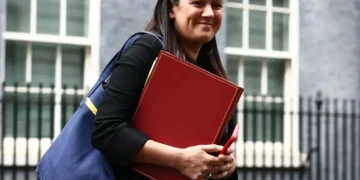Geneva, January 23, 2025 – The Fourth Report of Kazakhstan on the fulfilment of human rights obligations and the implementation of recommendations from the previous review was considered during the 48th session of the Working Group of the United Nations Human Rights Council’s Universal Periodic Review.
The delegation of the Republic of Kazakhstan comprised senior officials from nine key state bodies directly responsible for implementing state policy and monitoring the fulfilment of the country’s human rights obligations, along with members of the Mazhilis of the Parliament of Kazakhstan.
More than 100 delegations from UN Member States participated in the review, demonstrating a genuine interest in an open and constructive dialogue with Kazakhstan. The event took place in an interactive format, during which UN Member States raised questions, provided comments, and made recommendations for further improvements to the country’s human rights system.
Kazakhstan’s official delegation, led by Minister of Justice Yerlan Sarsembayev, addressed the UN Human Rights Council on a wide range of issues. The delegation highlighted the comprehensive reforms undertaken by President Kassym-Jomart Tokayev in the areas of human rights and the rule of law. Key legal initiatives were presented, including measures to eliminate torture and ill-treatment, enhance the right to peaceful assembly and freedom of association, support media freedom and the rights of journalists, and combat human trafficking and domestic violence. Additionally, the delegation provided comprehensive responses to questions raised by UN Member States, enriching the dialogue and sharing best practices in human rights.
In his address to the Council, Deputy Minister of Foreign Affairs of Kazakhstan, Roman Vassilenko, shared the country’s experience in cooperating with the Office of the UN High Commissioner for Human Rights, the Special Procedures of the Human Rights Council, and UN treaty bodies. He highlighted the inter-agency mechanism established by a presidential decree to address inquiries from UN special rapporteurs and treaty bodies on individual communications. The Kazakh diplomat also provided an overview of ongoing technical cooperation with the Office of the UN High Commissioner for Human Rights. According to human rights experts, this level of engagement underscores Kazakhstan’s commitment to advancing its human rights protection system and democratic processes.
In response to questions about strengthening the dialogue between the government and civil society, Mr. Vassilenko emphasized the role of the consultative and advisory body, the “Human Dimension Dialogue Platform,” which convenes regularly at the Ministry of Foreign Affairs of Kazakhstan. He underscored the platform’s constructive role in facilitating the adoption of three human rights action plans and several legislative acts addressing a wide range of political and social issues.
During the dialogue with Kazakhstan’s delegation, UN Member States expressed their support for the country’s ambitious reforms and welcomed concrete actions to strengthen fundamental human rights and freedoms. In particular, the international community commended the adoption of laws aimed at combating domestic violence, ensuring child safety, strengthening the mandate of the Commissioner for Human Rights and the National Preventive Mechanism, and enhancing social protection, particularly for vulnerable populations.
The UN Member States acknowledged the abolition of the death penalty, the adoption of the Action Plan on Human Rights and the Rule of Law on December 8, 2023, and Kazakhstan’s contributions to the work of the UN Human Rights Council during its 2022-2024 membership.
The Universal Periodic Review, as a unique mechanism of the UN Human Rights Council, provides an opportunity for all Member States to have their human rights situations regularly assessed.
The report of the UPR Working Group on Kazakhstan, along with recommendations from UN Member States, will be adopted by the UN Human Rights Council during its 59th session in June 2025.





























